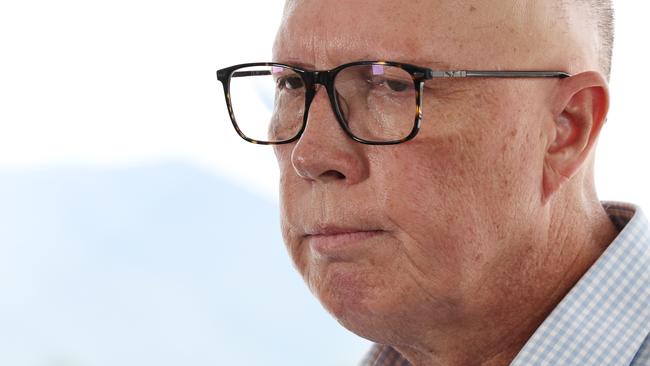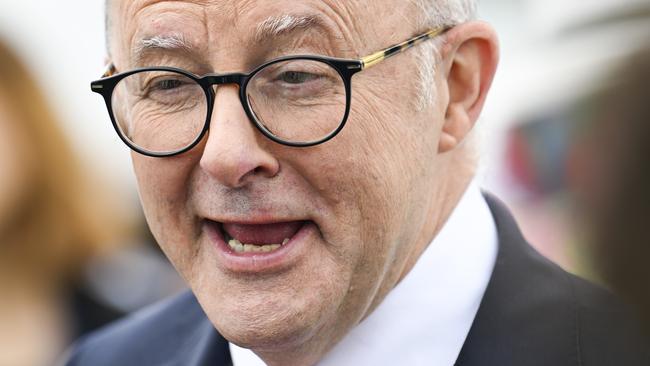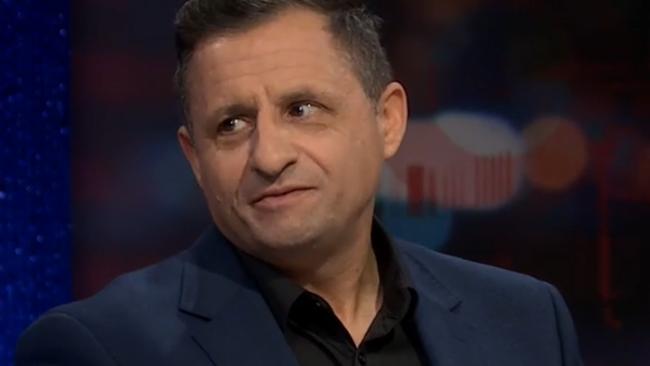Peter Dutton’s path to victory revealed as polls show most Aussies think he’ll win
A majority of voters now believe that Peter Dutton will win the next election, according to Newspoll. But there’s a contradiction in the numbers.
National
Don't miss out on the headlines from National. Followed categories will be added to My News.
A majority of voters now believe that Peter Dutton will win the next election, according to Newspoll. But there’s a contradiction in the polling numbers.
Based on a swing of 3.1 per cent, Mr Dutton would not pick up enough seats to form a majority government, based on current polling numbers.
The electoral calculus requires Mr Dutton to win 18 seats to form government. But the current polling only guarantees picking up seven to 14 seats.

On current polling, the Coalition will probably win the two-party count or popular vote, though not necessarily a majority of House of Representatives seats.
This is what Labor leader Kim Beazley did in 1998 after the first term of the Howard government. Despite winning almost 51 per cent of the two-party-preferred vote, Labor fell short of forming government.
The Howard government was re-elected with 49.02 per cent of the two-party-preferred vote.
Labor’s primary vote has fallen two points since December of 2024 to an equal-record low of 31 per cent, with the Coalition’s primary vote has remained steady at 39 per cent.
But based on the two-party preferred vote, when Labor picks up preferences from the Greens, there are only seven Labor-held seats on margins below the swing. This increases to 13 seats if a swing of 4 per cent is achieved by the Coalition.

The prediction by voters that Mr Dutton will win could still turn out to be correct. But to do that, he will need to improve his 51-49 lead on the Albanese government. Undecided voters would need to break his way.
Indeed, the Coalition’s lead on a two-party-preferred basis points to a likely minority Labor government if the results are repeated at the election.
Mr Dutton needs nearly three times the current amount of seats he’d gain, as indicated by the polls, to form government.
Of course, swings are never uniform. If a swing of 4 per cent were achieved for the Coalition at the election, Mr Dutton would pick up 13 seats.
But that still would not be enough for the Coalition to win a majority. Based on that result, Mr Dutton could potentially form a minority government with independents.
What is clear is that the Liberal Party has a much better primary vote than Labor.
According to Newspoll, 53 per cent of voters were expecting the Coalition to win the election compared to 47 per cent for Labor.
Key electorates that could decide election
According to Redbridge Group polling director Kos Samaras, the election could be won in NSW and Victoria, where there are multiple seats he says are “too close to call”.
WA was crucial to Labor at the last election, delivering the seats needed when Queensland didn’t deliver.
In NSW, Mr Samaras named the electorates of Robertson, Gilmore, Patterson and Hunter, and Sydney seats of Macarthur, Bennelong and Reid.
In Victoria, he pointed to Corangamite, Dunkley, Aston, McEwen, Hawke, Holt and Isaacs.
“They’re all in play,” he said.

While the marginal seats of Queensland used to be where the election was won and lost, Labor currently holds only five of the state’s 29 seats, with the Coalition claiming 21 and the Greens three.
“If Labor was to win (a majority) government they would probably need to recover in Queensland, but that doesn’t look like it’s happening now,” founder of election analysis blog The Tally Room, Ben Raue, said.
Mr Samaras also tipped little change in the 10 electorates within South Australia, with Labor holding six, the Coalition three and one held by Centre Alliance MP Rebekha Sharkie.
“There’s a lot of Liberal brand damage in Western Australian and that’s still present,” Mr Samaras said.
“I think on a normal day, the Coalition will gain one seat there but I don’t think anything is going to happen in South Australia.”
Albo ‘underestimated’
Over the weekend, Mr Albanese declared he’s been “underestimated” for his entire political career, insisting he can win the next election as he refused to rule out further tax cuts for low and middle income workers.
But the polls suggest if he does hang on it will be in a minority government.
The Prime Minister outlined why he still thinks he can win, maintaining the government is “heading in the right direction”, despite the polls showing that Mr Dutton had hit the lead when it comes to the popular vote.
In an interview with Sky News on Sunday Agenda, Mr Albanese said commentators were wrong to write him off.
“I’ve been underestimated my whole life,’’ Mr Albanese said.
“What I’m confident of is that I lead a government that’s focused, that’s orderly, that has seen Australia through some very difficult economic times, that we are heading in the right direction, and that we have an agenda to build on that in our second term.
“We understand that people have been doing it tough, but what we’ve done is act on that, not cheer that on which Peter Dutton has done.
“We’ve talked Australia up, and we’ve taken substantial measures to ensure inflation now has a two in front of it. We produced two budget surpluses to assist with that, but we’ve also had significant cost of living relief, all of which whether it was a tax cut for every taxpayer.”
Originally published as Peter Dutton’s path to victory revealed as polls show most Aussies think he’ll win



